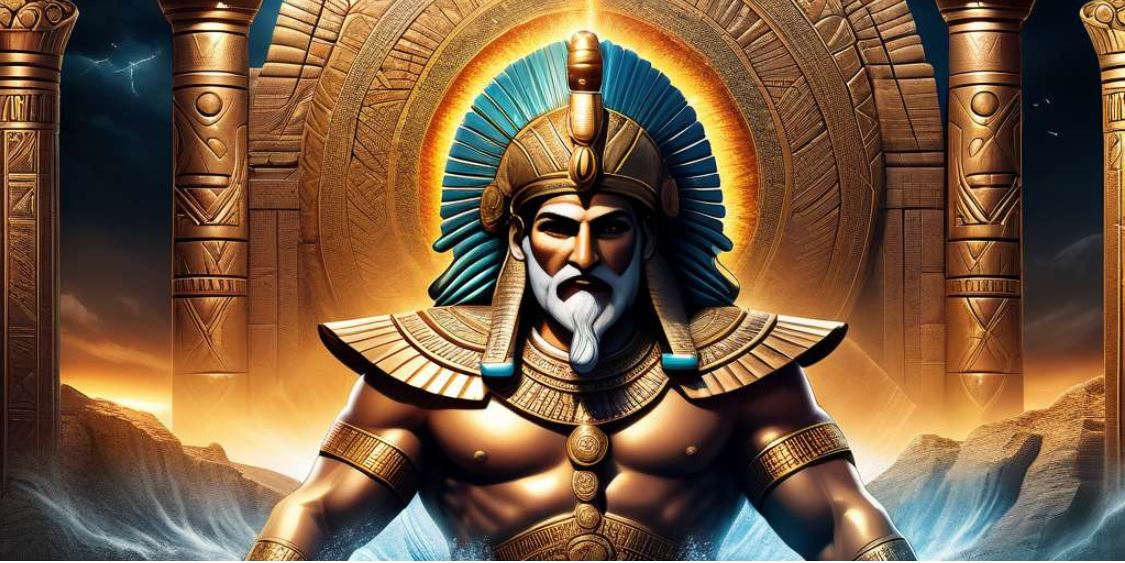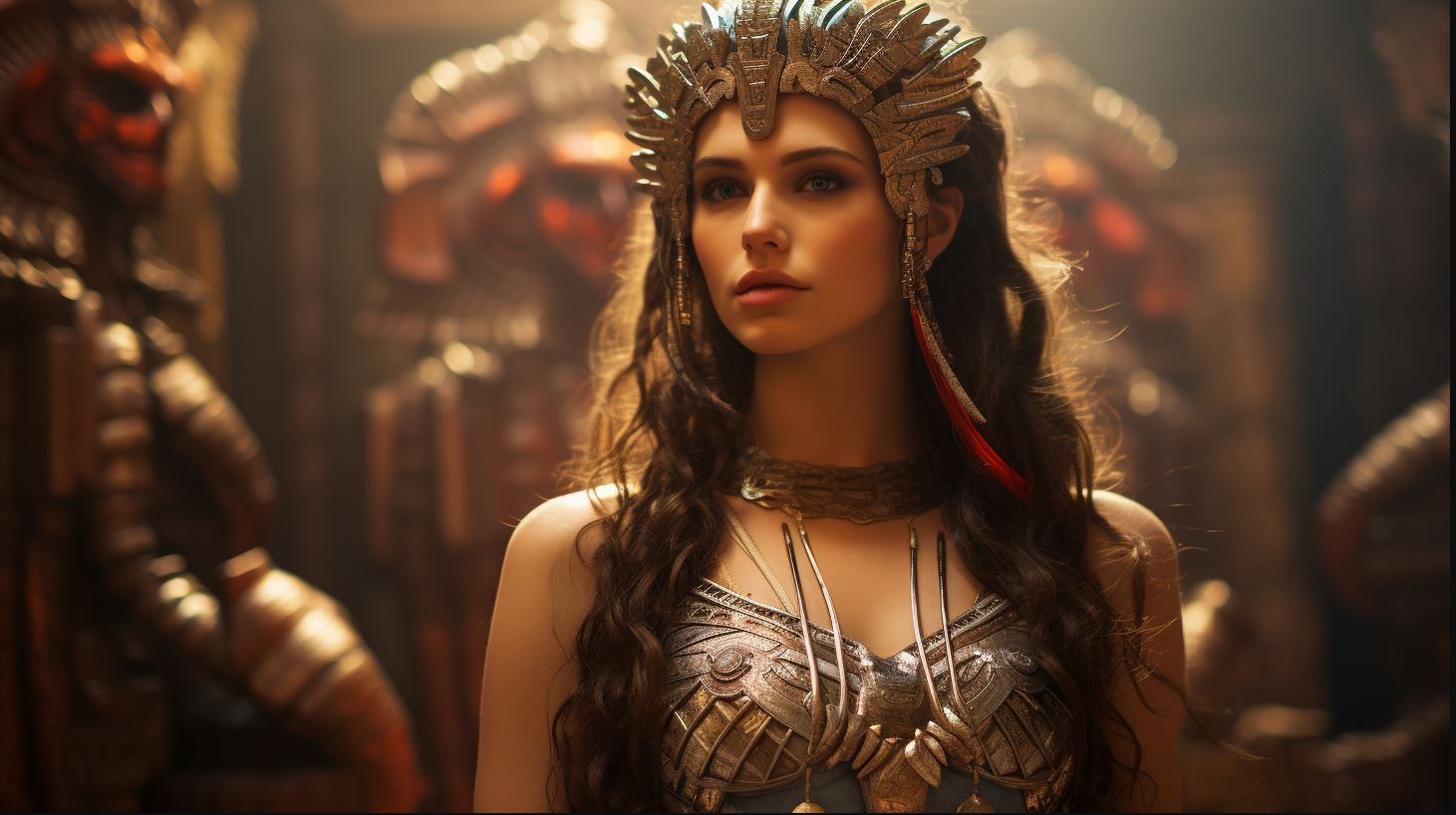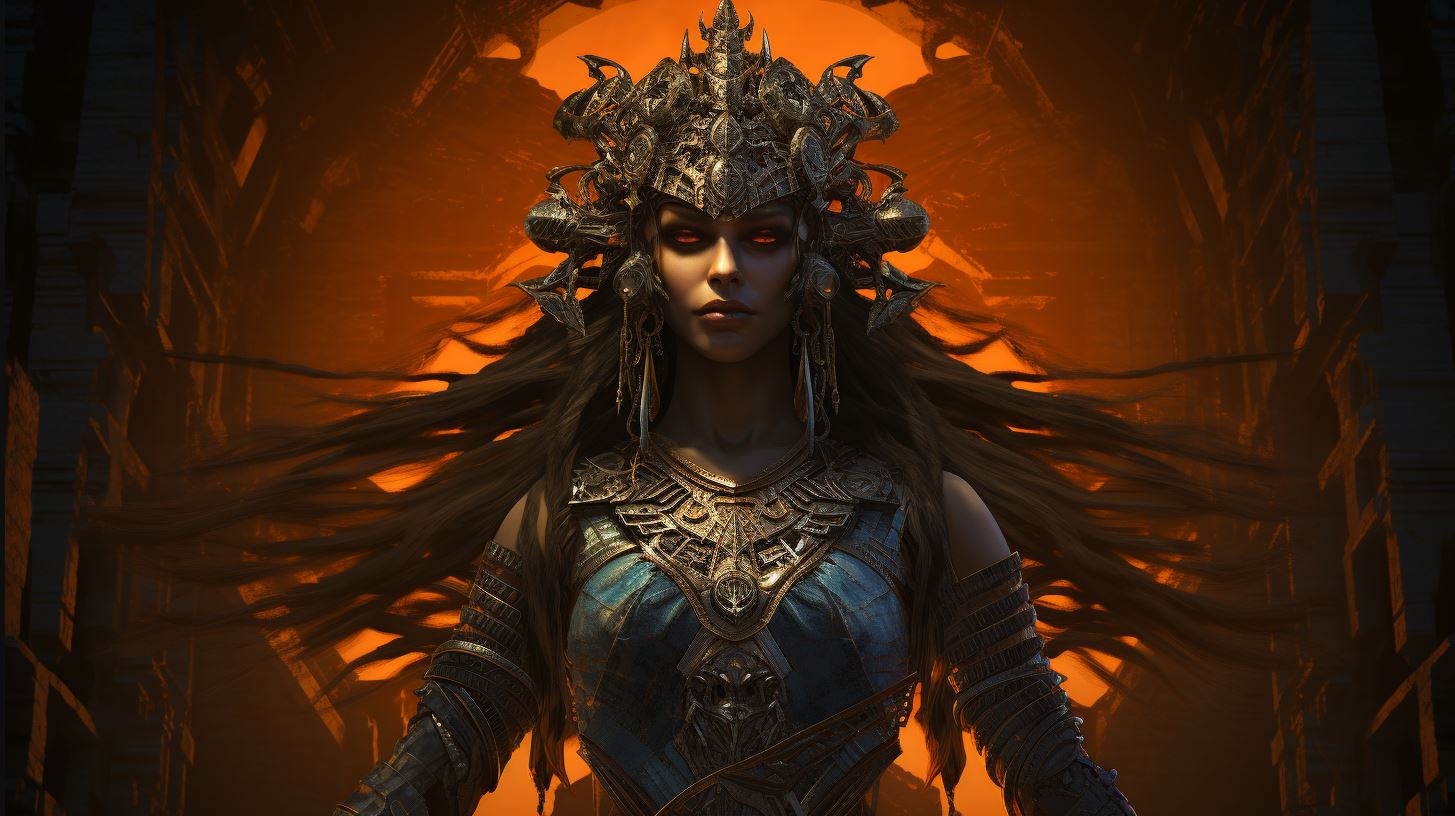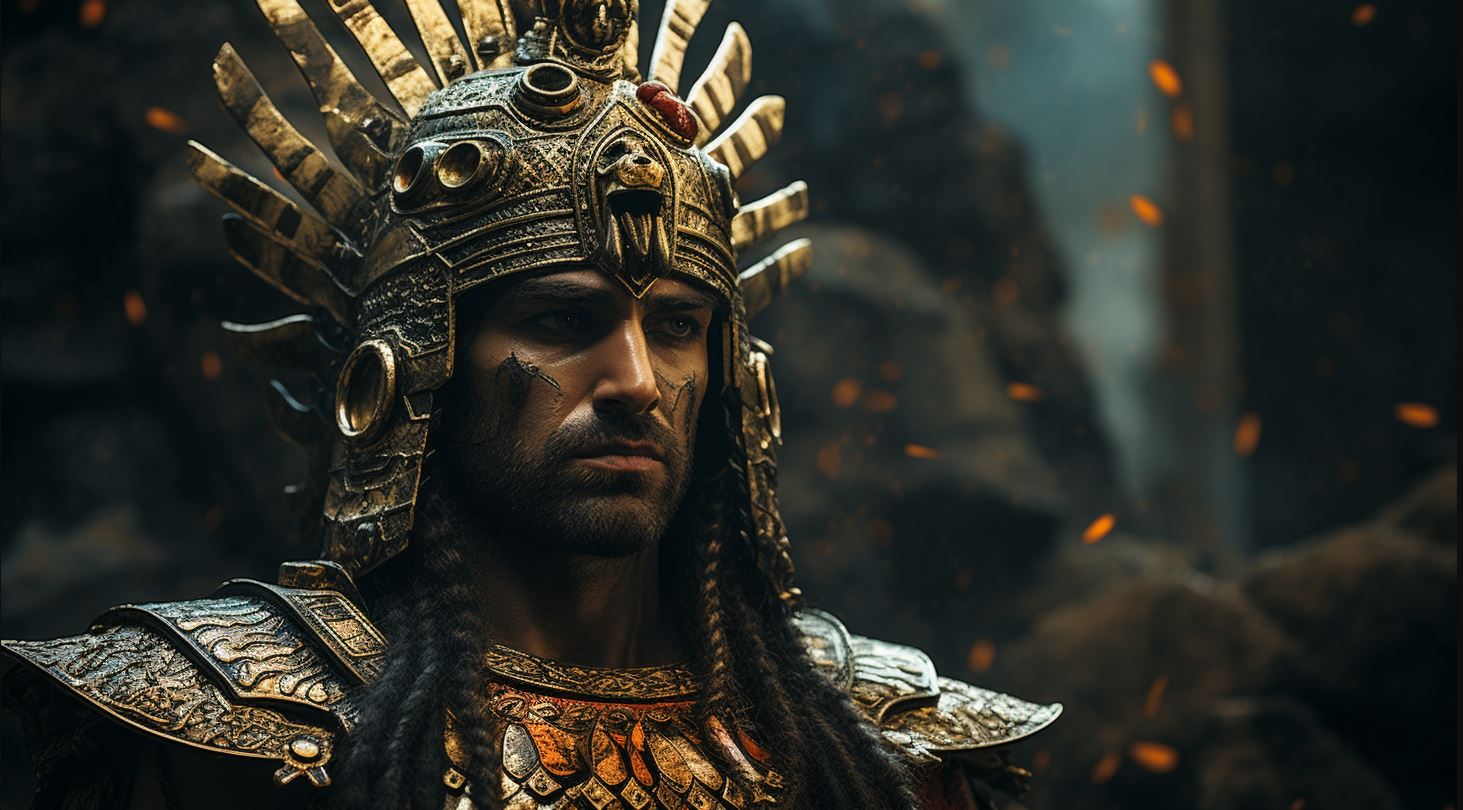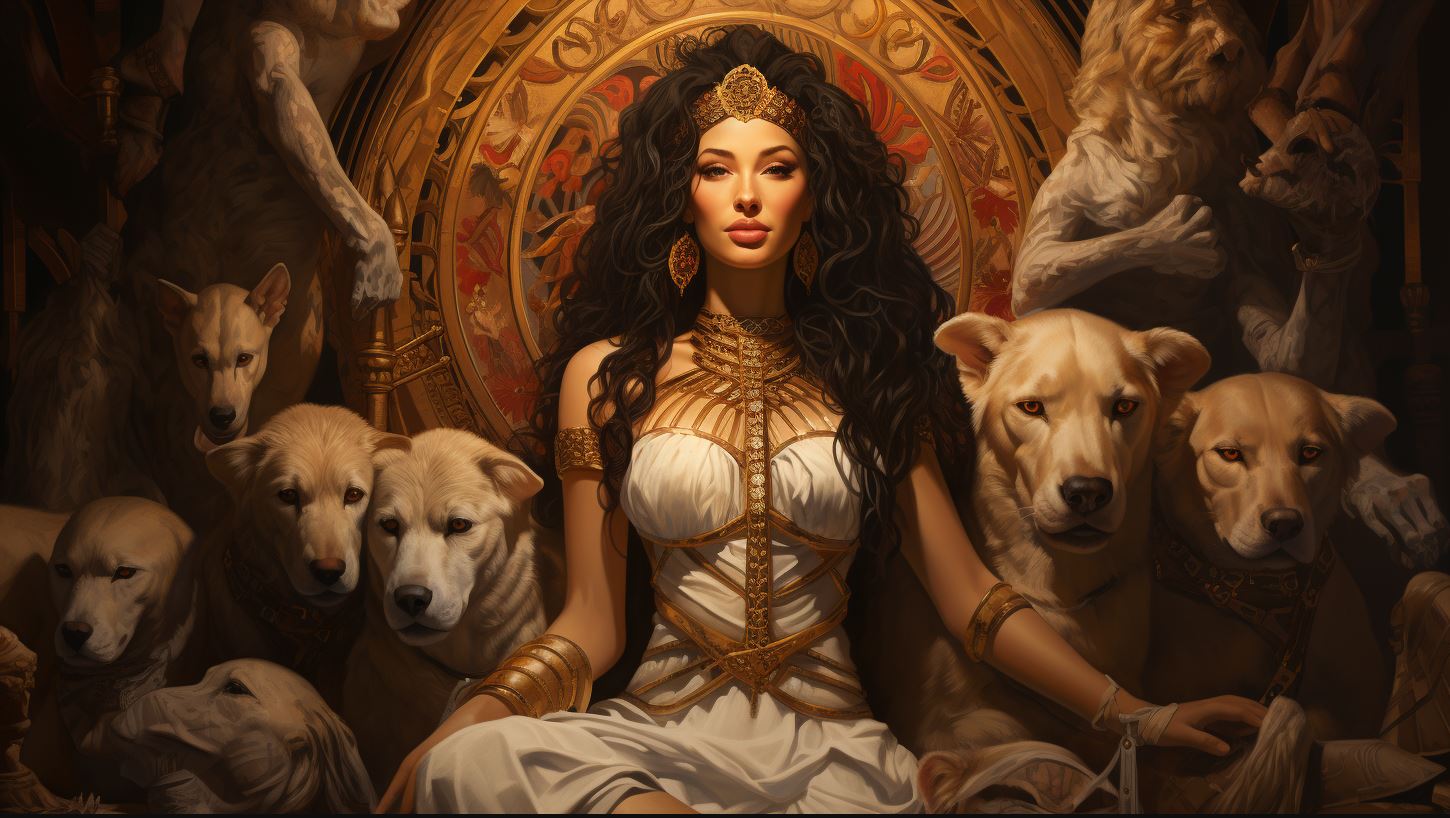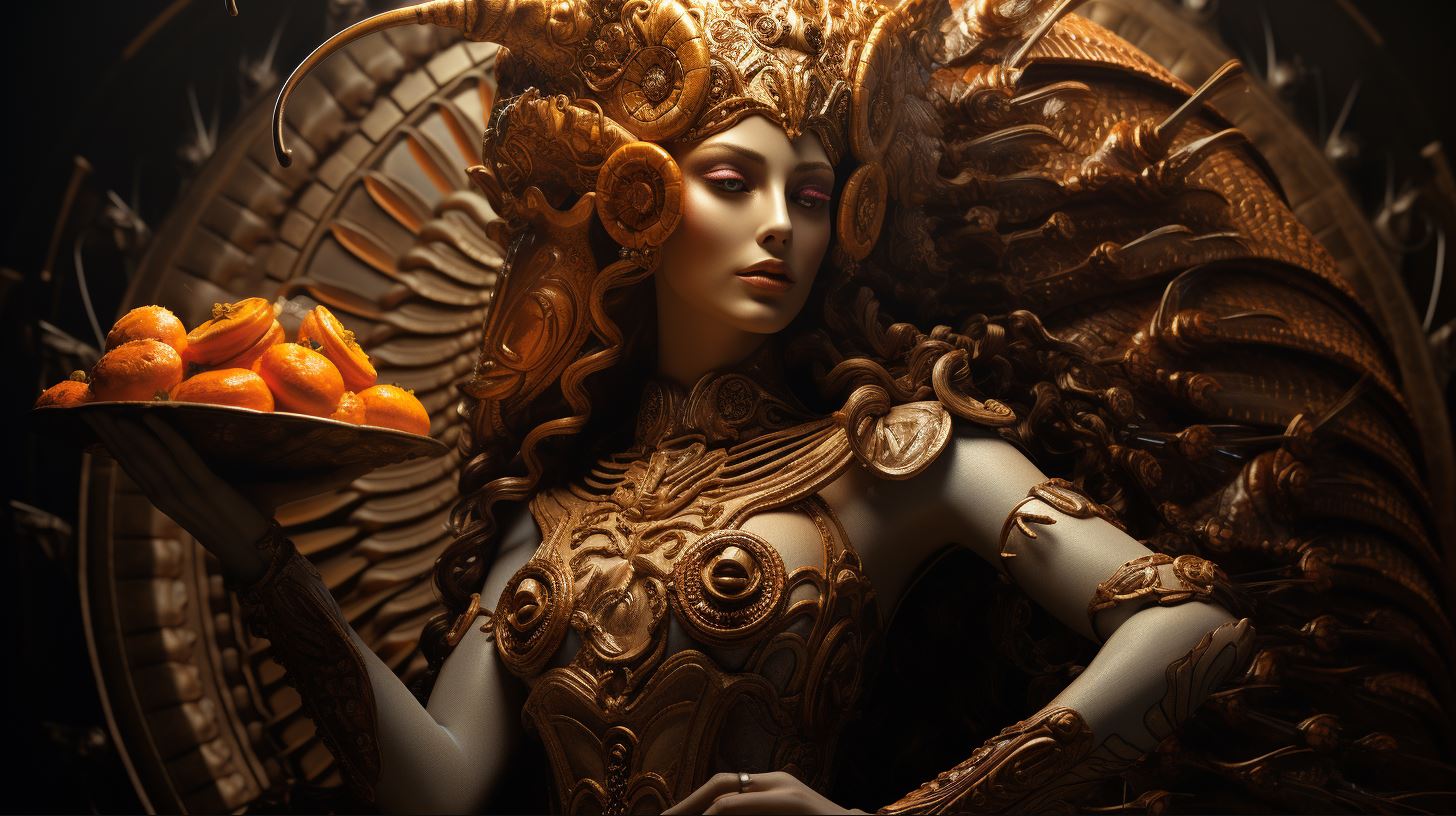Enki Sumerian God: Unveiling the Ancient Mesopotamian Deity
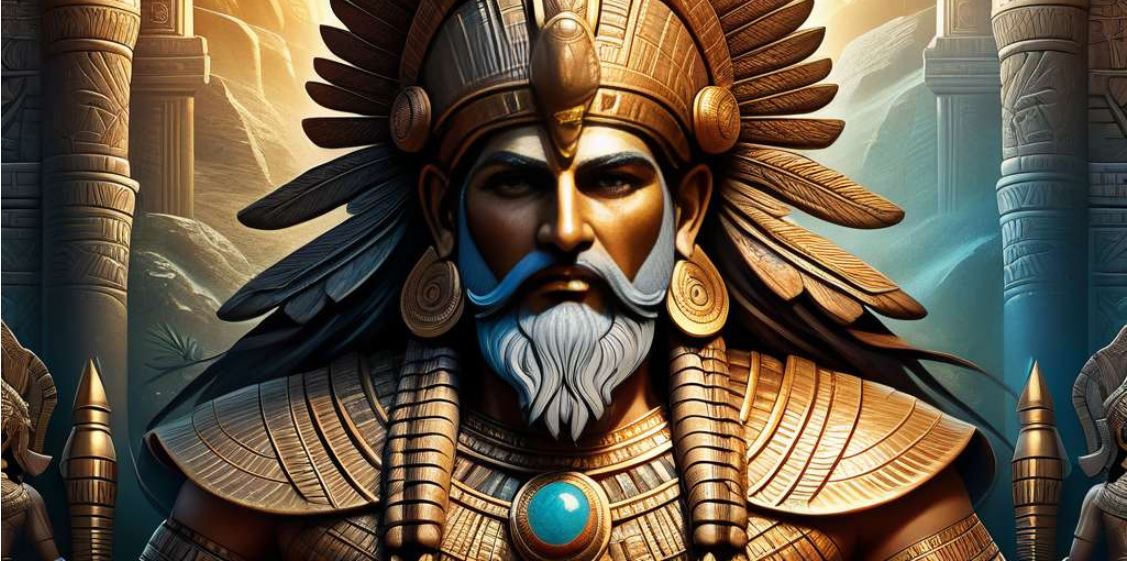
Enki, the Sumerian god, holds a significant place in ancient Mesopotamian mythology. As a water deity, Enki played a crucial role in creation stories and was associated with fresh water and Abzu.
This article explores Enki’s temples in ancient Mesopotamia, his relation to Inanna, and his status as a wise and powerful deity in ancient Near Eastern religion. Furthermore, we delve into Enki’s impact on later Mesopotamian cultures and his symbolism in Babylonian society.
Let’s embark on a journey to unravel the myth and legacy of Enki.
Overview of Sumerian Gods and Goddesses
Sumerian mythology is rich with a pantheon of gods and goddesses who played significant roles in the lives of ancient Mesopotamians. These deities were instrumental in shaping the religious and cultural beliefs of the Sumerian civilization.
Three prominent figures in this pantheon include Enki, Inanna, and Enlil.
Enki: The Ancient Mesopotamian Deity
Enki, also known as Ea, was one of the most revered gods in the Sumerian pantheon. As the god of fresh water, wisdom, and crafts, Enki held immense power and influence.
He was believed to have created mankind and served as the protector of humanity. With his profound knowledge and creative abilities, Enki guided and assisted other gods in various divine tasks.
Inanna: The Goddess of Love and War
Inanna, often referred to as Ishtar, was a prominent goddess in Sumerian mythology. Known as the goddess of love, beauty, and fertility, Inanna held dominion over both romantic and martial aspects of life.
She was the patron deity of the city of Uruk and played a crucial role in Mesopotamian religious practices. Inanna’s tales often revolve around her exploits, empowering women and challenging societal norms.
Enlil: The Lord of the Air
Enlil, the god of wind, air, and storms, was considered the supreme ruler of the Sumerian pantheon. Revered as the god responsible for natural disasters and weather phenomena, Enlil exercised control over the forces of nature.
His worship was closely tied to agricultural practices, as he was believed to bring rain and fertility to the land. Enlil’s authority extended beyond the physical realm, encompassing political and societal matters as well.
These three deities, Enki, Inanna, and Enlil, represent different aspects of Sumerian religious beliefs and heavily influenced the lives of ancient Mesopotamians. Exploring their mythologies sheds light on the intricate and fascinating world of Sumerian gods and goddesses.
Enki: The Water God in Sumerian Mythology
The ancient Sumerian mythology holds Enki as a prominent deity associated with water. Let’s explore Enki’s role in creation mythology, his connection to fresh water and Abzu, as well as the magnificent temples dedicated to him in ancient Mesopotamia.
Enki’s Role in Creation Mythology
Within Sumerian cosmology, Enki played a crucial role in the creation of the world. He was believed to possess immense wisdom and knowledge, actively participating in the shaping of humanity and the establishment of civilization.
Enki’s Connection to Fresh Water and Abzu
Fresh water was of utmost importance to ancient Mesopotamian societies, as it sustained life and agriculture. Enki was revered as the divine force responsible for providing this life-giving resource. Additionally, Enki’s connection to Abzu, the primordial underground water source, symbolized his role in the life cycle and fertility.
Enki’s Temples in Ancient Mesopotamia
A number of magnificent temples were dedicated to Enki throughout ancient Mesopotamia. These temples served as centers of worship and were places of great significance. Eridu, Enki’s main cult center, stood as the oldest city in Sumerian civilization, housing a grand temple dedicated to the water god.
Enki and Inanna: The Mythical Connection
Enki, the ancient Mesopotamian deity, shares a profound and mythical connection with Inanna, the goddess of love and war. Their intertwining story reveals the complex nature of divine relationships in Sumerian mythology.
The Story of Enki and Inanna
According to ancient texts, Enki and Inanna’s tale is one of power, desire, and transformation. Inanna, driven by her ambition, sought to acquire Enki’s divine powers for herself. In her quest, she embarked on a perilous journey to the sacred realm of Eridu, where Enki resided.
Enki, aware of Inanna’s formidable determination, devised a series of trials to test her worthiness. Through these challenges, Inanna had to prove her strength, wisdom, and compassion. She faced trials that tested her ability to navigate treacherous waters, withstand deadly encounters, and demonstrate her love for her people.
As Inanna overcame each obstacle, she grew in power and understanding, gaining Enki’s respect and admiration. This journey transformed both Inanna’s character and her relationship with Enki, forging an unbreakable bond between them.
Enki’s Influence on Inanna’s Journey
Enki’s impact on Inanna’s journey extended beyond the trials she faced. He bestowed upon her divine knowledge and secrets, empowering her as a great goddess. Enki’s wisdom illuminated Inanna’s path and connected her to powerful forces within the cosmos.
With Enki’s guidance, Inanna learned the art of diplomacy, strategic warfare, and the mysteries of sexual identity. She became a multifaceted deity, embodying both the nurturing aspects of femininity and the fierce determination of a warrior.
Enki’s influence catalyzed Inanna’s transformation into a complex and influential figure in Sumerian mythology.
This mythical connection between Enki and Inanna highlights the intricate dynamics within Mesopotamian pantheon. Their story reflects the themes of power, ambition, and personal growth, shaping the perception of these two deities in ancient Mesopotamian society.
- The story of Enki and Inanna reveals a profound and mythical connection between the two deities.
- Inanna’s journey to acquire Enki’s divine powers tested her strength, wisdom, and compassion.
- Enki’s influence and guidance transformed Inanna, empowering her as a multifaceted goddess.
- Their intertwined story reflects the complexity of divine relationships in Sumerian mythology.
Key Points:
Enki and His Role in Ancient Near Eastern Religion
Enki, the wise and powerful Sumerian god, played a significant role in ancient Near Eastern religion.
Revered for his deep knowledge and immense power, Enki held a prominent place in the pantheon of deities worshiped in Mesopotamia. Let us explore Enki’s influence and his relationships with other gods and goddesses.
Enki as a Wise and Powerful Deity
Enki was revered as an immensely wise and knowledge-bearing deity in the ancient Near Eastern religion. Often depicted with a flowing beard and carrying a container of water, Enki symbolized wisdom, creation, and fertility.
As the god of fresh water, Enki was believed to possess the wisdom to guide humanity and shape their destinies. His association with wisdom made him a sought-after deity for guidance and protection in various aspects of life.
Enki’s Relationships with Other Gods and Goddesses
Enki had complex relationships with other gods and goddesses in the ancient pantheon. His interactions with both familial and non-familial deities shaped the myths and legends in Mesopotamian culture. One notable relationship was his connection with Inanna, the goddess of love and war.
Enki played a significant role in Inanna’s journey and provided her guidance in her divine challenges. Additionally, Enki interacted with deities like Enlil, the lord of the air, and Ninhursag, the mother goddess, forming intricate and dynamic relationships that influenced the cosmology and religious practices of the time.
In summary, Enki held a prominent position as a wise and powerful deity in ancient Near Eastern religion. Revered for his wisdom and associated with fresh water, Enki’s influence extended beyond his individual characteristics, impacting the wider pantheon and religious practices of the era.
The Legacy of Enki in Babylonian History
The ancient Sumerian god, Enki, left a profound legacy in Babylonian history, impacting various aspects of Mesopotamian cultures and society. Let’s explore two significant aspects of Enki’s legacy:
Enki’s Influence on Later Mesopotamian Cultures
Enki’s influence extended beyond the Sumerian civilization and continued to shape later Mesopotamian cultures.
As the god associated with wisdom, crafts, and water, Enki’s teachings and traditions became integrated into the beliefs and practices of subsequent civilizations in the region.
Artifacts and inscriptions discovered in ancient Akkadian, Babylonian, and Assyrian cities reveal the veneration of Enki and the incorporation of his myths into their own religious systems.
This assimilation demonstrates the enduring impact of Enki and his significance as a divine figure.
In Babylonian culture, Enki’s wisdom and knowledge were highly respected and sought after. His influence spanned across fields such as agriculture, architecture, medicine, and craftsmanship.
The legacy of Enki’s teachings contributed to the advancements and innovations seen in these areas throughout Babylonian history.
Enki’s Symbolism and Impact on Society
Enki’s symbolism played a crucial role in Babylonian society, influencing various aspects of daily life and societal structure. His association with water symbolized fertility, abundance, and purification.
The Babylonians recognized the importance of water for agricultural prosperity, emphasizing their reliance on the rivers and irrigation systems.
As the god of fresh water and Abzu, Enki represented the life-giving force essential for sustaining crops, supporting livelihoods, and driving economic growth.
Furthermore, Enki’s connection to wisdom and knowledge positioned him as a patron deity of scholars, scribes, and artisans.
His role as an educator and protector of craftspeople contributed to the flourishing intellectual and artistic pursuits within Babylonian society.
Summary
The impact of Enki, the Sumerian god, on Babylonian history is undeniable. His influence on later Mesopotamian cultures, as well as his symbolism and significance in society, shaped the beliefs, practices, and advancements of the ancient Babylonians.
Enki’s legacy endured through the centuries, leaving an indelible mark on the civilizations that followed.
..

